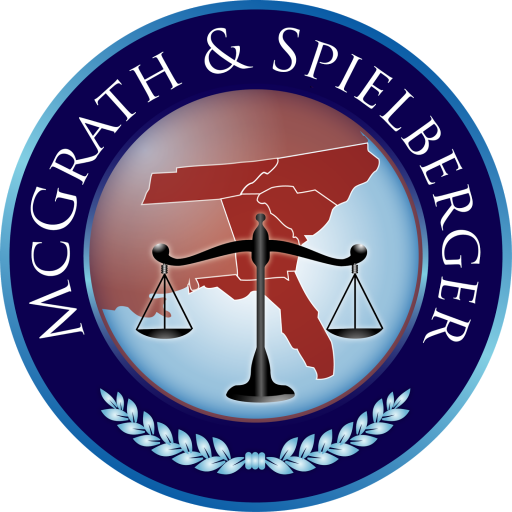If you are facing a lawsuit in North Carolina please fill out our confidential client intake form for legal assistance.
Category: Jason A McGrath
Why does your Corporation or Company Need a Registered Agent?
If you are in need of legal assistance for your business in North Carolina, South Carolina, Tennessee, Georgia or Florida please fill out our confidential client intake form.
Legal ‘Claim and Delivery’ Actions in North Carolina

In this video attorney Jason McGrath explains ‘Claim and Delivery’ procedures for North Carolina under the rules of civil procedure.
If you are in need of legal assistance with a Lawsuit in North Carolina, South Carolina, Tennessee, Georgia or Florida please fill out our confidential client intake form.
NC Home Foreclosure Hearings – Should the Borrower Attend?
If you are facing a foreclosure situation in North Carolina please fill out our confidential client intake form for legal assistance.
Post-Foreclosure Deficiency Judgments in NC
Summary Judgment
If you are facing a lawsuit in North Carolina please fill out our confidential client intake form for legal assistance.
Servicemembers’ Civil Relief Act and Foreclosures
Can the HOA (Homeowners’ Association) Foreclose on my Home?
Jason McGrath Interviewed Regarding Internet Security for Law Firms andtheir Clients
Law firms warned to be vigilant against cybercrime – The Charlotte Business Journal
Jan 30, 2015 – The N.C. State Bar released ethics opinions about cybersecurity, and … so they can be more efficient,” says Jason McGrath, partner at McGrath & Spielberger . . . . (click link above for full story or read it below)
Law firms warned to be vigilant against cybercrime
LEGAL INC. SUBSCRIBER CONTENT: Jan 30, 2015, 6:00am EST
Bea Quirk, Contributing Writer
At the Mecklenburg County Bar’s recent monthly luncheon, the speaker, FBI Agent Colleen Moss, told attendees that although small and midsized law firms don’t regard themselves as targets for hackers, they are. As supervisor of the Charlotte Division’s Computer Intrusion Cyber Squad, she knows firsthand the firms’ vulnerability, no matter the size.
“Anytime there’s a large pot of money involved — escrow, a trust — you’re going to be a target,” Moss told the lawyers. “Criminals look for the fastest and quickest way to make the most money possible. If they find any other data that’s usable and sellable on the Internet, that’s fair game, too.”
Hackers aren’t always subtle in their attacks, as seen in a form of malware called ransomware that is gaining popularity. Hackers install a “cryptolock” on a company’s files and won’t provide access until a ransom is paid, says Clark Walton, an attorney at Alexander Ricks. He has a digital forensics consulting business and previously worked in cybersecurity at the Central Intelligence Agency.
Moss and Walton say regularly updating operating systems, firewalls and antivirus software is the best defense.
Email remains the entry point of choice for hackers. Moss says up to 85% of incidents stem from phishing emails — messages that look legitimate that ask the recipient to click on a link or open an attachment. That allows a hacker to install malware that infects the user’s computer — and an entire system.
“These criminals are good at socially engineering emails that look legitimate or are designed to pull at your heart strings,” Moss says.
One such effort surfaced last year, when hackers were found to have penetrated pharmaceutical companies and their outside advisers in banking and law. Emails were written in “flawless English” and tailored to recipients, who were duped into revealing information that allowed hackers to profit in stock trades, The New York Times reported.
Moss says information on a firm’s website and employee Facebook pages can be used to create credible email. Even though employees of law firms are generally aware of the danger, Moss says they still fall for scams offering financial rewards in exchange for providing access to a checking account.
But law firms have a difficult situation to balance. They are businesses and need to respond to emails. They can’t be ignored, even if they appear suspicious. Moss suggests employees contact their IT department, server host or a consultant. She also recommends reporting apparent scams to www.ic3.gov, an information clearinghouse for Internet crime.
If a law firm in North Carolina is hacked, the state’s Identity Theft Protection Act mandates that customers and clients be informed. Moss also hopes a firm will contact the FBI, which might be able to curb additional damage. Doing so also helps the agency track criminals and can increase the public’s awareness of current scams.
Both the state and national bars are aware of the growing problem. The N.C. State Bar released ethics opinions about cybersecurity, and the American Bar Association published a guide to security.
Moss says cybersecurity is often a matter of risk management. Law firms must consider the costs of security and their tolerance for risk. Small firms must do this kind of analysis as their work and communications are increasingly digitized.
“Smaller firms are moving more to technology so they can be more efficient,” says Jason McGrath, partner at McGrath & Spielberger and chair of the Bar committee that organized Moss’ presentation. “You have to invest in security once technology becomes your bread and butter. It’s just common sense.”
Jason McGrath Interviewed by TV Station Regarding BOA Fraud
Former BofA workers claim they received bonuses for foreclosures… – WSOC tv
Jun 17, 2013 – “I’ve seen all of those things that this lawsuit has mentioned. Yes I have,” said Jason McGrath a foreclosure attorney in Charlotte. McGrath helps … (click here to see the TV broadcast story and interview excerpts)
By Blair Miller
CHARLOTTE, N.C. —
Eyewitness News took a closer look at the allegations in the latest lawsuit on Monday night.
The lawsuit against Bank of America lays out some strong accusations. It claims the Charlotte-based bank gave cash bonuses and gift cards to employees who pushed homeowners into foreclosure.
It was the heart of the recession, at a time when many homeowners were looking for help, but on Monday night, according to a new federal lawsuit, former employees claim loan collectors who put customers into foreclosure were rewarded with gift cards to Target and Bed, Bath and Beyond.
The suit said those who would put at least 10 customers into foreclosure would get $500 bonuses.
According to Bloomberg, ex-Bank of America employees said mortgage workers falsified records and were told to delay applications for government loan assistance by asking customers to fill out paperwork that had already been received.
“I’ve seen all of those things that this lawsuit has mentioned. Yes I have,” said Jason McGrath a foreclosure attorney in Charlotte. McGrath helps clients save their homes.
He said on Monday night that he works with Bank of America often and he is glad that the public is hearing the claims.
“It’s one of those things that it’s great for folks like me because we experience this on a day-to-day basis and we are finally glad to see it see the light of day,” said McGrath.
On Monday night, in a statement to Eyewitness News about the lawsuit, Bank of America said, “These attorneys are painting a false picture of the bank’s practices and the dedication of our employees. While we will address the declarations in more depth when we fire out opposition to the plaintiff’s motion next month, suffice it is to say that each of the declarations is rife with factual inaccuracies.”
McGrath said in some ways the lawsuit helps his clients.
“Some of my clients say I’m so glad to hear you tell me other people are going through this and it’s not just me. They feel much more persecuted. It’s weird since they feel better that other people are going through this as well,” he said.
Seven former loan employees are pushing to get the lawsuit approved for class-action status.
᠃

